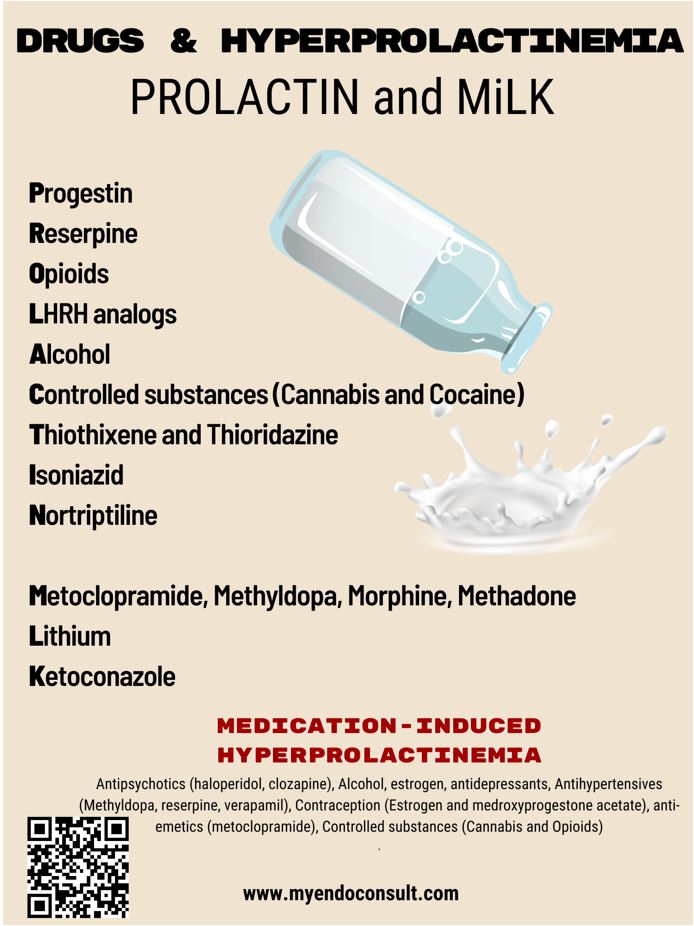Prolactin is a hormone that plays an important role in milk production and is typically only released during pregnancy and breastfeeding. However, certain medications can also cause prolactin levels to rise. These medications include antipsychotics, antidepressants, antiemetics, and some heart medications.
There are several medications associated with osteoporosis, which can be easily remembered using the mnemonic “PROLACTIN and MiLK”
Drugs causing hyperprolactinemia
PROLACTIN and MiLK (milk)
- Progestin
- Reserpine
- Opioids
- LHRH analogs
- Alcohol
- Controlled substances (Cannabis and Cocaine)
- Thiothixene and Thioridazine
- Isoniazid
- Nortriptiline
- Metoclopramide, Methyldopa, Morphine, Methadone
- Lithium
- Ketoconazole
A simple mnemonic to remember these drugs

So, when you see a patient with galactorrhea, think about whether they may be taking any of these types of drugs. If so, it may be the cause of their symptoms. Thanks for reading!
-Your Friendly Neighborhood medical student
Drugs associated with gynecomastia
Also, a simple mnemonic for gynecomastia is MAKE BREAST
- Marijuana
- Alcohol
- Klinefelter syndrome
- Estrogen excess
- Baby (circulating maternal estrogens)
- Receptor blockers (Ketoconazole, calcium channel blockers, H2 Blockers)
- Elderly
- Antineoplastic agents (alkylating agents)
- Spironolactone
- Tumors (adrenal or testicular)
References
Torre DL, Falorni A. Pharmacological causes of hyperprolactinemia. Ther Clin Risk Manag. 2007;3(5):929-951.
Images(s) Courtesy
MyEndoConsult
Kindly Let Us Know If This Was helpful? Thank You!


